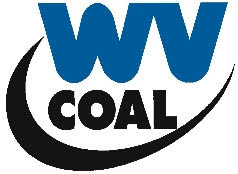“The natural gas industry and our state are stronger today than they were yesterday,” IOGAWV Board President Ben Sullivan said. “With the merger of these two great associations, the industry is better positioned now to advocate for public policy that will help grow this vital industry. We also have a singularly focused voice when it comes to publicizing our industry’s positive economic and environmental impact on this state, region and nation.
“As our individual member companies are doing with their businesses, GO-WV will create operational efficiencies and savings at a time where commodity prices are depressed,” Sullivan said.
With the merger approved, a newly formed GO-WV board will work over the next few months to craft a new brand, consolidate offices and identify its agenda for the upcoming 2021 legislative session. IOGAWV Executive Director Charlie Burd will now become GO-WV’s executive director.
“This is a historic moment,” said WVONGA Board President Thomas Westfall. “We celebrate and embrace this new association as we combine the strengths of two influential groups into one dynamic and powerful organization. In 2021, GO-WV will bring renewed vitality as we advance our state’s economy. The merger also provides a unique opportunity for sharing best safety and environmental practices across industry sectors.”
This industry employs thousands in West Virginia and is responsible for more than $4 billion in state severance and property tax revenue since 2008.
“West Virginia is blessed with enough gas for generations into the future,” Burd said. “This region helps provide natural gas to power plants, manufacturing facilities and fertilizer to our farmers. Natural gas also is Earth’s cleanest burning fossil fuel. It provides affordable energy, reduces carbon dioxide emissions and helps to create local manufacturing jobs.”
About GO-WV
GO-WV will have more than 600 members, including producers, pipeline operators, local distribution companies, affiliate businesses and trade organizations. GO-WV’s goals are to promote and protect the industry by identifying and educating members about the challenges, opportunities and best practices within the industry; encourage and project a unity of purpose among members; educate the general public, elected officials and appointed representatives about the importance of the industry; and protect and improve the state’s economy and environment.




